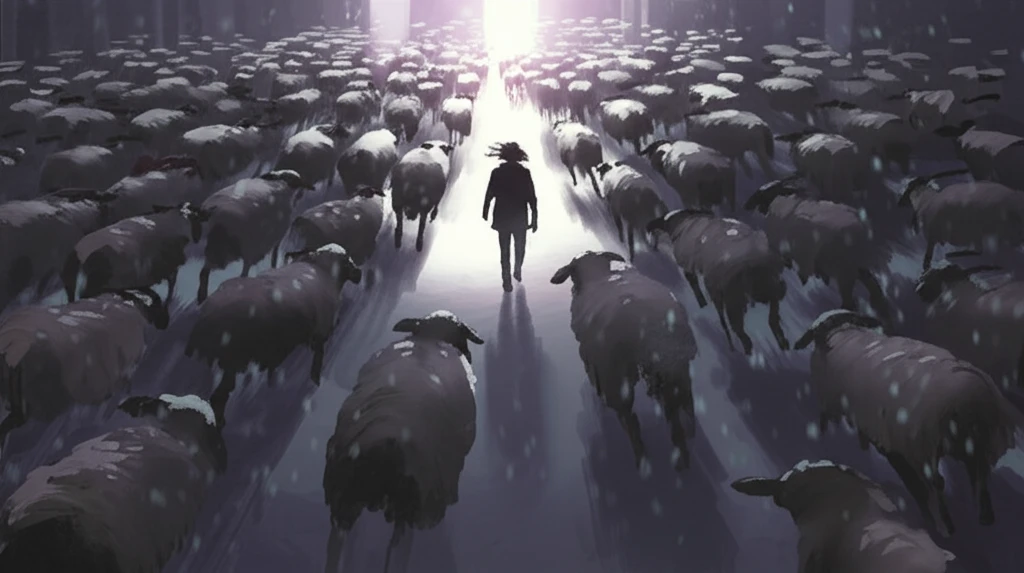
Beyond the Herd: How Social Learning Really Works and What It Means for You
"New research reveals the hidden dynamics of information sharing and decision-making in social networks, offering insights into everything from product choices to political opinions."
In an increasingly connected world, observational learning—or social learning—has become a dominant force in shaping individual choices and collective outcomes. From the products we buy to the political opinions we hold, we are constantly influenced by the actions and beliefs of others within our social networks. But how does this process really work? And when does following the crowd lead to wisdom, and when does it lead to collective error?
For years, economists and social scientists have grappled with these questions, often focusing on the concept of "unbounded beliefs" as the key to understanding how societies learn from each other. This idea suggests that for a society to converge on the truth, individuals must be open to the possibility of radical shifts in their beliefs, driven by the information they receive from others. However, recent research challenges this conventional wisdom, arguing that unbounded beliefs are not only unnecessary for social learning, but can actually be incompatible with the familiar ways we process information.
A groundbreaking study by Navin Kartik, SangMok Lee, Tianhao Liu, and Daniel Rappoport introduces a new framework for understanding social learning, one that emphasizes the crucial interplay between individual preferences and the structure of information within social networks. Their work reveals a simple yet powerful condition called "excludability," which offers a more nuanced and realistic account of how societies learn and make decisions together. This article explores the key insights from their research, offering a fresh perspective on the dynamics of social learning and its implications for individuals and organizations alike.
What is "Excludability" and Why Does It Matter?

The central concept introduced by Kartik, Lee, Liu, and Rappoport is "excludability." Unlike unbounded beliefs, which focus on the possibility of extreme shifts in belief, excludability emphasizes the ability of individuals to displace wrong actions, even if they cannot perfectly identify the correct one. This subtle distinction has profound implications for understanding how social learning unfolds in practice.
- More Realistic: Excludability aligns more closely with how people actually process information, as it doesn't require individuals to entertain wildly improbable scenarios.
- Broader Applicability: Excludability can be satisfied under a wider range of informational structures, including familiar ones like normal information (where signals are normally distributed around the true state).
- Focus on Action: Excludability shifts the focus from belief formation to action, recognizing that social learning is ultimately about coordinating behavior and making better decisions.
Breaking Free from the Herd: Practical Implications
The insights from Kartik, Lee, Liu, and Rappoport's research offer valuable lessons for individuals and organizations seeking to navigate the complexities of social learning. By understanding the importance of excludability, we can become more aware of the potential pitfalls of herd mentality and take steps to foster more informed and independent decision-making. Whether you're choosing a new product, evaluating a business strategy, or forming an opinion on a social issue, remember that true wisdom lies not in blindly following the crowd, but in cultivating a diverse range of perspectives and critically evaluating the information available to you. Encourage diverse sources of information. Create a culture where dissenting opinions are valued, and individuals feel safe challenging the status quo. Seek out information that directly contradicts your current beliefs. This helps to identify potential blind spots.
